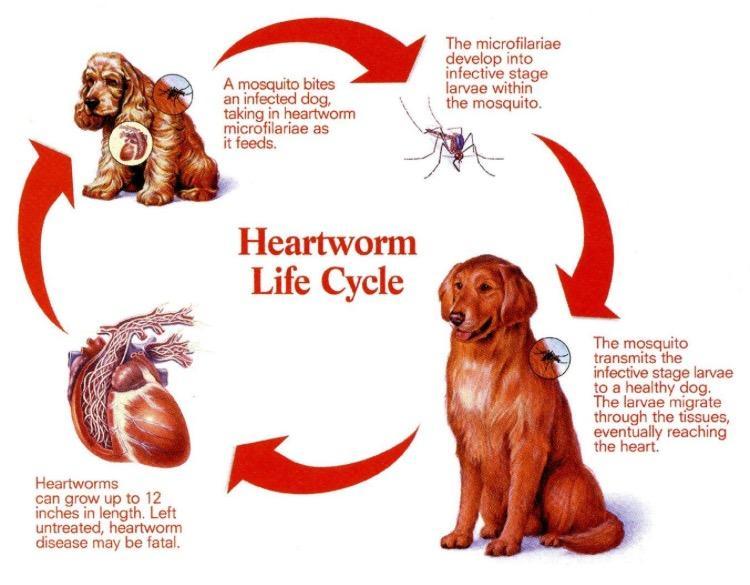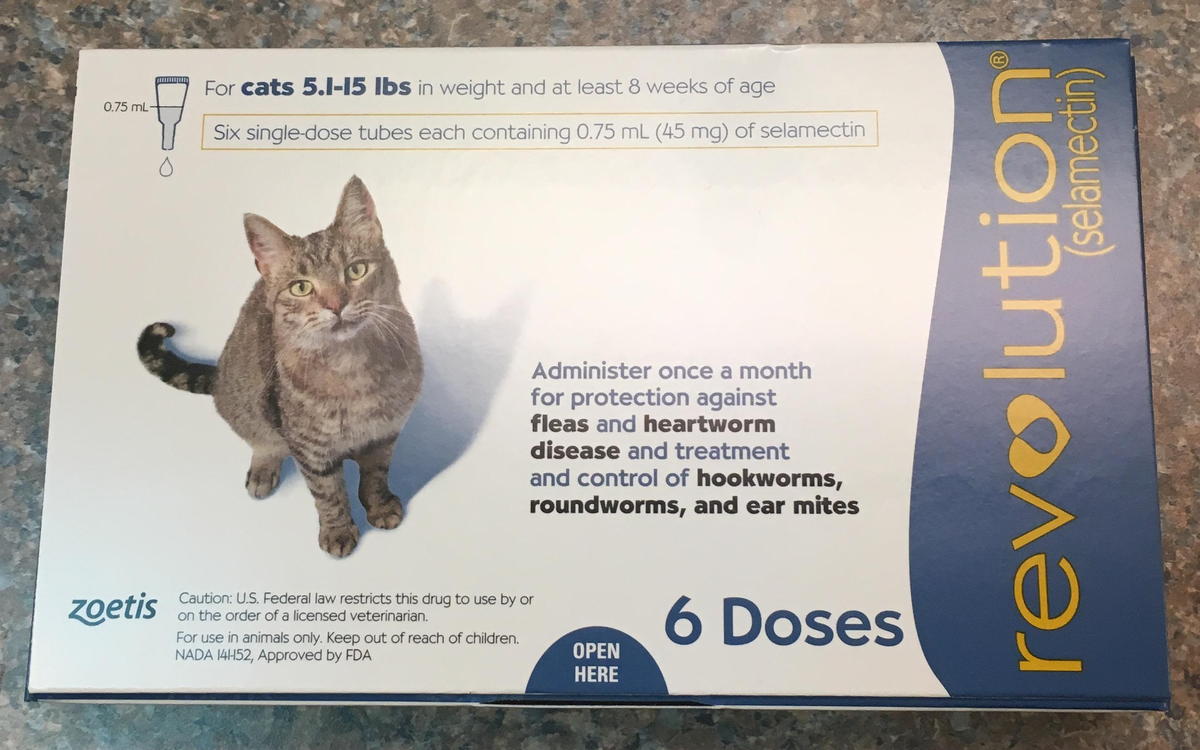
Heartworm disease (caused by the organism Dirofilaria Immitus) is a serious, parasitic infection that can cause heart and lung damage in dogs, cats, and sometimes ferrets. This tricky disease usually has no symptoms in the early stages and is only spread by mosquitos. This condition happens in animals after a female mosquito infected with heartworms deposits larvae into the pet via her saliva while she is feeding. Within six months, heartworm larvae are fully mature and can live for years inside your pet without any symptoms. In advanced stages your cat or dog may show signs such as coughing or exercise intolerance due to the worms growing and maturing in the arteries of the heart and lungs. To prevent the threats of heartworms it is advised to contact your Veterinarian and get on the appropriate products and perform testing as recommended.
Testing for Heartworms at All Creatures Veterinary Clinic
All Creatures will help you with appropriate medication and proper testing protocol for dogs and cats. Dogs are recommended to have a heartworm test once a year after they are six months old; however they should start a preventative after they are six weeks old as long as they meet the product’s weight requirement. Heartworm testing for dogs is fairly simple; it is a blood test that looks for microfilaria (baby heartworms) in the sample. Some infections are not diagnosed if the infection occurred less than six months prior, so testing every year is important. Tests are recommended to be performed every year even if preventative is used on time and year round to be sure that the preventative product is working correctly.
Cats have a different protocol here than what our canine friends receive. Heartworm disease in cats is often undiagnosed due to the fact that felines are not the ideal host for heartworms. The heartworms generally do not mature to the adult stage which makes it difficult to have an accurate test for diagnosis. X-rays may be able to help identify infection if it is advanced, because even if the worms are immature they still cause damage to the lungs and heart. There is also no approved treatment of heartworm disease in positive cats, so like with our dogs, prevention is key. Next we have the products we recommend for such prevention.
How much Heartworm Prevention Medication Does Your Pet Need?
Although there is treatment available for our dogs, it is expensive, takes months to treat and kill the adult heartworms, and cannot be guaranteed to be a safe procedure. If your dog is left untreated it may show signs such as coughing, exercise intolerance, and could ultimately lead to heart failure and possibly death. This is the reason preventative products are so important in regards to the health of your beloved pet. At All Creatures Veterinary Clinic we recommend year round prevention. The dose depends on your pet’s weight. Puppies and kittens may need their dose amount adjusted every month to insure they are properly protected on their preventative.
Here we recommend Heartgard monthly for our canines. Heartgard is a preventative that is a tasty, chewable tablet you can give your pet as a treat. If your dog will not take the pill, or is allergic to the flavoring, we do have topical medications such as Revolution available. The topical drops soak through your pet’s skin and quickly reach your pet’s bloodstream, where the medication kills heartworm larvae.

For cats we only offer the monthly topical preventative (Revolution which has products for cats and dogs) which also protects your cat from hookworms, roundworms, ear mites, and fleas.

Keep your pet happy, healthy, and heartworm free by calling All Creatures Veterinary Clinic today and scheduling an appointment. 402-399-8224
